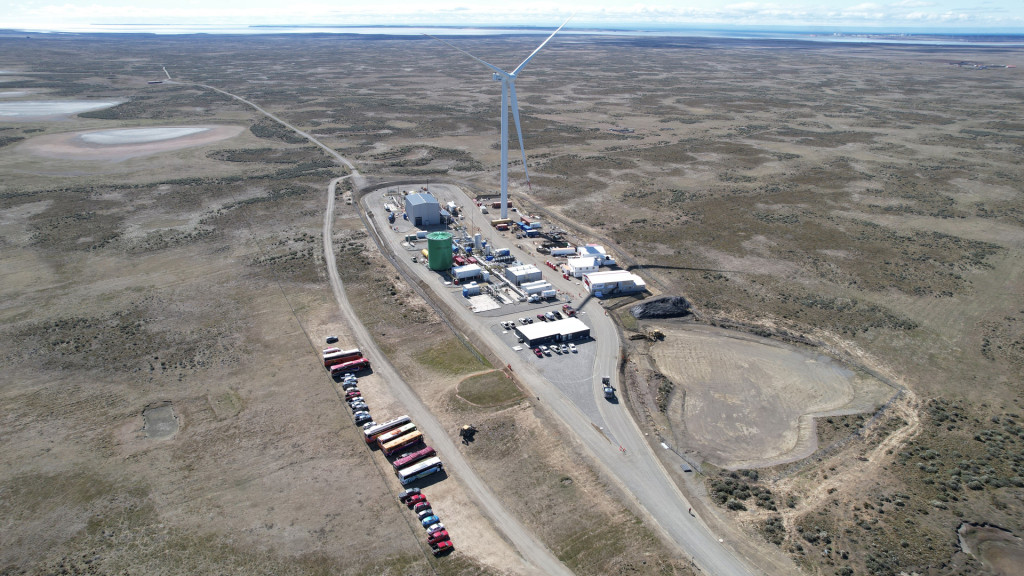Porsche on Tuesday announced that a pilot plant in Chile, which the automaker helped fund, has come online and is producing an almost fully climate-neutral synthetic fuel. To mark the occasion, Porsche R&D chief Michael Steiner used the first gallons to fill a 911.
Although electric cars are growing in popularity, their internal-combustion counterparts are going to be around for years to come, especially in developing countries where electric infrastructure is lacking. One solution for dealing with the carbon emissions of internal-combustion engines is the use of carbon-neutral synthetic fuels, or eFuels—a name that's growing in popularity.
While CO2 is emitted when the fuel is burned, the generation of the fuel absorbs CO2 from the air. To make the fuel, electrical energy generated by a wind turbine is used to form hydrogen via electrolysis of water, essentially the reverse of what happens in a hydrogen fuel cell. The hydrogen is then combined with CO2 captured from the air, in a synthesis process that creates gasoline and liquefied gas.
The pilot plant is located in Punta Arenas, Chile, a site that experiences strong winds around 270 days a year and is also located close to major shipping routes. Operated by local firm HIF Global, which counts Porsche as an investor, the plant is slated to produce around 34,000 gallons of fuel per year initially and around 145 million gallons by about 2025. Porsche is also looking at establishing similar plants in other areas, including Australia and the U.S.

Haru Oni synthetic fuel pilot plant in Punta Arenas, Chile
The automaker previously estimated an 85% reduction in carbon emissions for synthetic fuels made with renewable energy, with lower "well to wheels" emissions than EVs, once emissions related to manufacturing are factored in.
Some environmental groups don't agree with these claims, however. European environmental group Transport & Environment has called synthetic fuels "a mirage." But while electrification may be the way forward for new road cars, synthetic fuel could find use in other modes of transportation, like air travel—and for keeping classic cars on the road.
The fuel will also be used in motorsports. Porsche is already testing synthetic fuel in its Supercup race series, in partnership with series sponsor ExxonMobil. Formula 1 is also working with Saudi Arabian oil giant Aramco to create synthetic fuel for use in F1 and eventually to be delivered to gas stations around the world.
“The potential of eFuels is huge. There are currently more than 1.3 billion vehicles with combustion engines worldwide. Many of these will be on the roads for decades to come, and eFuels offer the owners of existing cars a nearly carbon-neutral alternative,” Steiner said in a statement.
